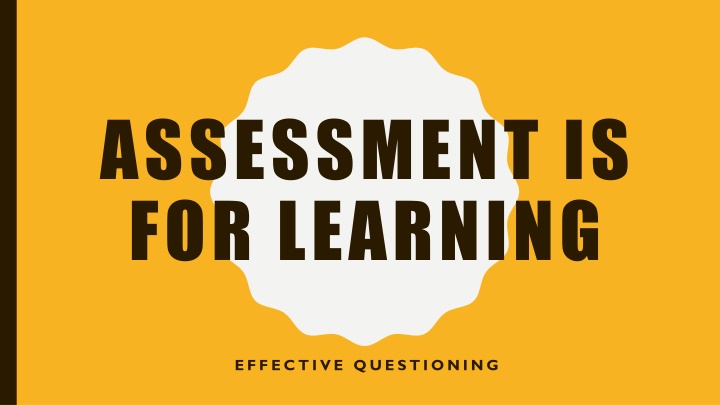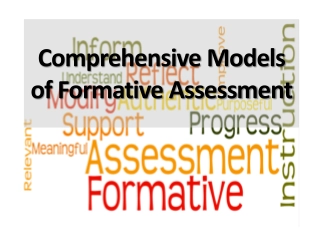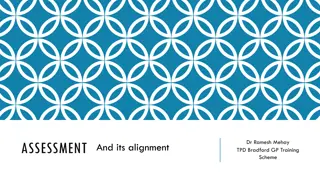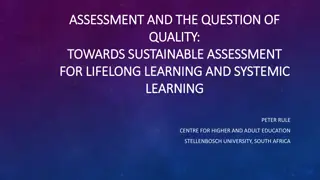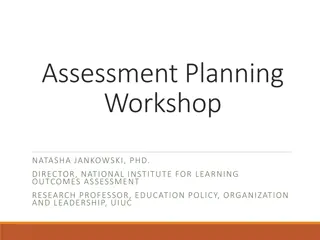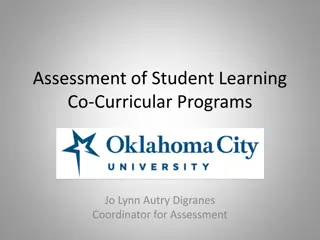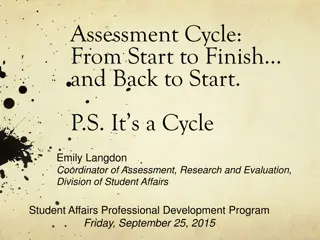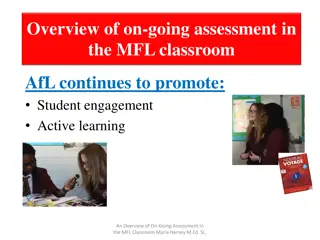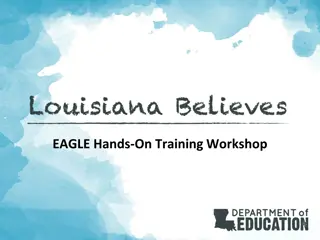ASSESSMENT IS FOR LEARNING
Engaging in effective questioning is vital for creating an interactive classroom environment where all students participate in discussions. By asking thought-provoking questions, sharing learning goals, and providing constructive feedback, educators can foster a culture of continuous learning and development. Strategies like Think-Pair-Share, establishing thinking time, and utilizing peer assessment further enhance the learning experience. This comprehensive approach aims to encourage active engagement, critical thinking, and deeper understanding among learners.
Download Presentation

Please find below an Image/Link to download the presentation.
The content on the website is provided AS IS for your information and personal use only. It may not be sold, licensed, or shared on other websites without obtaining consent from the author.If you encounter any issues during the download, it is possible that the publisher has removed the file from their server.
You are allowed to download the files provided on this website for personal or commercial use, subject to the condition that they are used lawfully. All files are the property of their respective owners.
The content on the website is provided AS IS for your information and personal use only. It may not be sold, licensed, or shared on other websites without obtaining consent from the author.
E N D
Presentation Transcript
ASSESSMENT IS FOR LEARNING EFFECTIVE QUESTIONING
Effective questio- ning Sharing learning goals Self and peer assessment Formative Assessment Underpinned by a belief that all learners can make progress; that achievement comes from effort not just ability. Effective feedback
Effective questio- ning Sharing learning goals Self and peer assessment Formative Assessment Effective feedback
LEARNING INTENTIONS We will be able to establish a classroom culture in which all pupils engage in discussion We will know strategies to ask effective questions
Most lessons involve some class discussion where the teacher asks the whole class or a group questions All pupils must be engaged in this discussion those who are and who are thinking constantly and considering answers will be learning and developing all the time; those who opt out and don t pay attention will not be.
T-P-S Why do we ask questions?
WHY DO WE QUESTION? To diagnose who knows what? (but then so what? How do we use this information?) To spark thinking, discussion To motivate To help children make connections to what they already know To help make connections to future learning / what will happen next
TO ESTABLISH A CULTURE WHERE ALL PUPILS ARE INVOLVED Thinking time Strategies for gathering in answers A big /hinge question Talking partners
THINKING TIME At least three seconds and in some cases up to a minute (rather than one second) Making it clear that it is thinking time Better to have something to do jot down an answer; discuss with a partner; Think Pair Share
RANDOM SELECTION Selecting pupils to answer rather than having them put their hands up Hands up? You must have a question!
A BIG QUESTION Following a block of teaching, a question is asked with multiple choice answers Answers indicated by: Holding up fingers Going to the corresponding corner Show me boards
HINGE QUESTIONS Pre- planned for about half way through a lesson The answers to this will determine where the lesson goes next Multi choice is easiest but open ended can be more effective Be prepared to go either way (or both ways) do you need to take a group and reinforce the learning? Does another group need to be given something more challenging?
TALKING PARTNERS Chance for pupils to consider answers together 30 seconds after questions, especially at start of lesson Change regularly weekly, if possible Continue to randomly select pupils to answer questions A class success criteria (like a list of rules) for being an effective talk partner should be established at the start of the session and displayed Where particular support is required there should be a trio rather than a pair Partners must be assigned by the teacher, rather than pupils just being instructed to discuss their ideas with someone
TALKING PARTNERS Not paired up by ability, gender, friendship But randomly
RESPONDING TO ANSWERS A teacher s response to pupils incorrect answers is also important In order to develop a true growth mind-set (vital for AifL to work) we must embrace challenge and remove the stigma around mistakes
RESPONDING TO ANSWERS Gathering answers Okay - does anyone have anything they can add to this? Asking for explanation of wrong answers What makes you say that? Offering additional information What if I told that ? Would that make a difference? Stalling to give pupil reflection time Hold that thought and we ll come back to that. No pressure What do you think? Anything at all. Thanking pupils for mistakes Thank you for that, actually, because it means we can discuss this more
